Why is it important to brush your teeth?
Brushing your teeth is an essential part of your dental care routine, and so is flossing. Brushing your teeth helps prevent tooth decay, bad breath, prevent gum disease and removes the plaque on your teeth. The American Dental Association recommends that you brush your teeth twice a day for a minimum of two minutes. While brushing, your toothbrush should be contacting the inner, outer and chewing surfaces of your teeth. There are two types of toothbrushes that can be used to do just that: an electric or manual toothbrush. Each of these toothbrushes has its pros and cons.
And don’t forget it is also important to make flossing part of your dental regimen as well.
Electric Toothbrushes
Electric toothbrushes contain bristles that rotate or vibrate to help get your teeth as clean as possible. One of the main advantages of electric toothbrushes is that the vibration creates micro-movements as you move your toothbrush across your teeth, something that manual toothbrushes can’t do. There are studies that show the decrease in gingivitis and plaque with the use of an electric toothbrush. Since this type of toothbrush does most of the work for you, it makes it easier to use for people with limited mobility. Electric toothbrushes can also have built-in timers that can help you brush your teeth a sufficient amount of time so that the plaque can be removed from your gums and teeth.
Some of the cons to note about electric toothbrushes is that they are more expensive than manual toothbrushes. They need batteries, and replacement brush heads that are costly and may be hard to find.
Manual Toothbrushes
Manual toothbrushes have you doing all the work to get your teeth clean. However, they are still an effective tool; they just don’t happen to be as fancy as electric toothbrushes. Manual toothbrushes are easily and affordably replaced and can be found almost anywhere. These types of toothbrushes do not need batteries, nor do they need to be charged. They can be used anywhere, at any time.
Some cons associated with manual toothbrushes is that people are more likely to brush harder which can hurt gums and teeth. These brushes do not have a built-in timer which means you may be brushing your teeth for an insufficient amount of time. They are not user-friendly with individuals that have limited mobility as they require more hands-on movements.
Which toothbrush is right for me?
Toothbrushes come in different head sizes and bristle configurations. Whether you are choosing between an electric or manual toothbrush make sure you are choosing one with soft bristles. Talk with your dentist if you have questions regarding toothbrushes; he or she may be able to recommend the best option for you. But it is also up to your personal preference and convenience.









